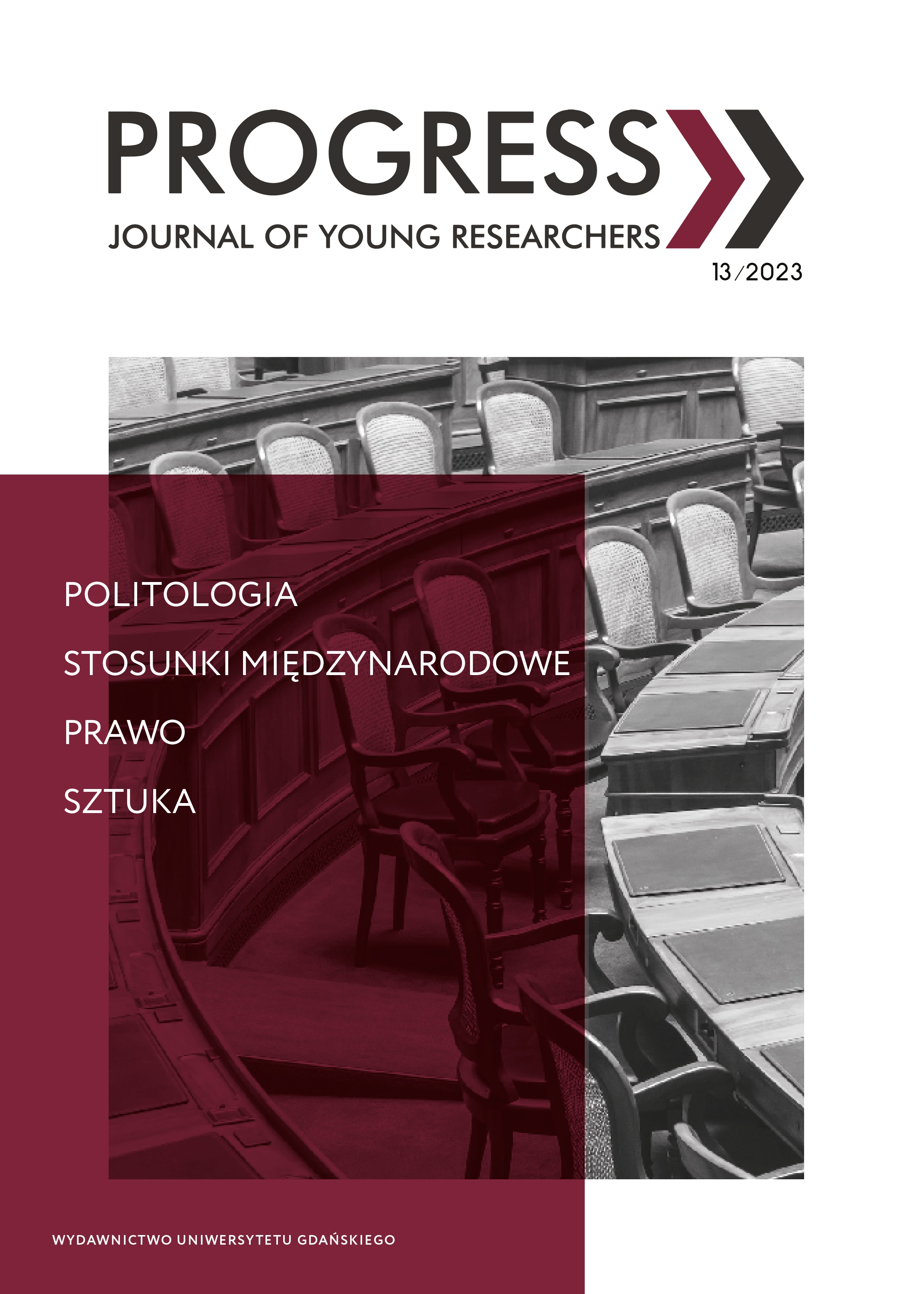Ujamaa African Socialism in Tanzania – theoretical basis and political practice
DOI:
https://doi.org/10.26881/prog.2023.13.01Keywords:
African socialism, Julius Nyerere, Ujamaa, Tanzania, decolonizationAbstract
This article aims to analyze the African socialist political thought based on Julius Nyerere’s Ujamaa project in Tanzania. The article presents two aspects of this idea – Ujamaa as a political doctrine, the foundation of which Nyerere expressed in his literary works, public speeches and, in most depth, in the Arusha Declaration, and Ujamaa as a political program which was the basis for creating state policies in Tanzania during Nyerere’s presidency in the years 1964–1985.
Downloads
References
Deklaracja z Aruszy i Polityka Socjalizmu i Samowystarczalności TANU, 1967.
Konstytucja Republiki Tanganiki, 1962.
Konstytucja Zjednoczonej Republiki Tanzanii, 1964.
Konstytucja Zjednoczonej Republiki Tanzanii, 1977.
Literatura
Arnold G., 1974, Kenyatta and the Politics of Kenya, London.
Assensoh A., 1998, African Political Leadership: Jomo Kenyatta, Kwame Nkrumah, and Julius K. Nyerere, Malabar.
Bjerk P., 2011, Postcolonial Realism: Tanganyika’s Foreign Policy Under Nyerere, 1960–1963, „The International Journal of African Historical Studies”, Vol. 44, No. 2.
Bjerk P., 2017, Julius Nyerere, Athens.
Cornelli P., 2012, A critical analysis of Nyerere’s Ujamaa: an investigation of its foundations and values, Birmingham.
Dukor M., 2009, Ideologies’ Role in Africa’s Political Underdevelopment, „Unizik Journal of Arts and Humanities”, Vol. 10, No. 2.
Friedland W., Rosberg C., 1964, African socialism, Stanford.
Heywood A., 2008, Ideologie polityczne – Wprowadzenie, Warszawa.
Hyden G., 1975, Ujamaa, Villagisation and Rural Development In Tanzania, „Development Policy Review”, Vol. A8, No. 1.
Kadima D., Lodge T., Pottie D. (eds.), 2002, Compendium of Elections in Southern Africa, Johannesburg.
Legum C., Mmari G. (eds.), 1995, Mwalimu: the influence of Nyerere, Dar es Salaam.
Molony T., 2014, Nyerere: The Early Years, Woodbridge.
Mwakikagile G., 2006, Life Under Nyerere, Dar Es Salaam.
Nyerere J., 1962, Ujamaa: The Basis of African Socialism, Dar Es Salaam.
Nyerere J., 1968, Ujamaa: Essays on Socialism, Dar Es Salaam.
Pratt, C., 1976, The Critical Phase in Tanzania 1945–1968: Nyerere and the Emergence of a Socialist Strategy, Cambridge.
Sedigh S., Stapenhurst R. (eds.), 1999, Curbing corruption: toward a model for building national integrity, Washington.
Shivji I., 2012, Nationalism and Pan-Africanism: Decisive Moments in Nyerere’s Intellectual and Political Thought, „Review of African Political Economy”, Vol. 39, No. 131.
Smith W., 1973, Nyerere of Tanzania, London.
Źródła internetowe
Dane Banku Światowego, 2021, https://data.worldbank.org/indicator/SP.POP.TOTL?locations=TZ [dostęp: 25.10.2022].
James S., 2014, What we can learn from Tanzania’s hidden socialist history, The Guardian, 11.12.2014, https://www.theguardian.com/commentisfree/2014/dec/11/tanzania-hidden-socialist-history-president-julius-nyerere [dostęp: 16.10.2022].
Nguyen K., 2007, Tanzanians wonder whether Nyerere saint or sinner, Reuters, 3.03.2007, https://www.reuters.com/article/us-tanzania-nyerere/tanzanians-wonder-whether-nyerere-saint-or-sinner-idUSL0220681820070303/ [dostęp: 25.10.2022].
Downloads
Published
How to Cite
Issue
Section
License
Copyright (c) 2023 Author(s)

This work is licensed under a Creative Commons Attribution 4.0 International License.

 Academic Scientific Journals
Academic Scientific Journals




